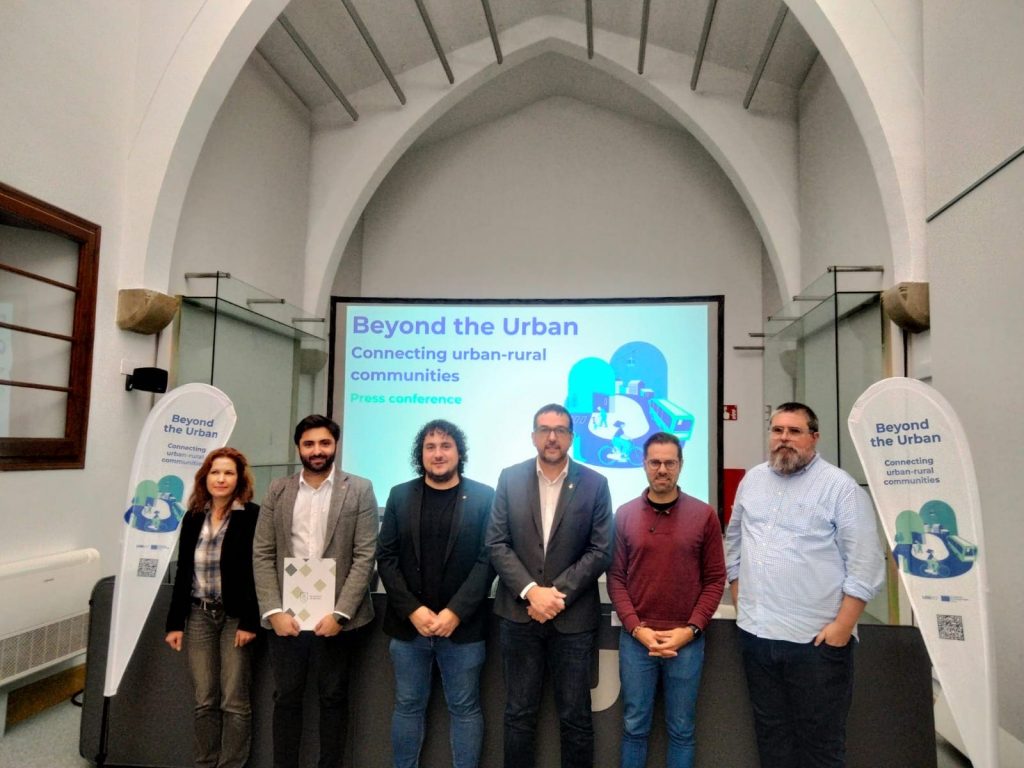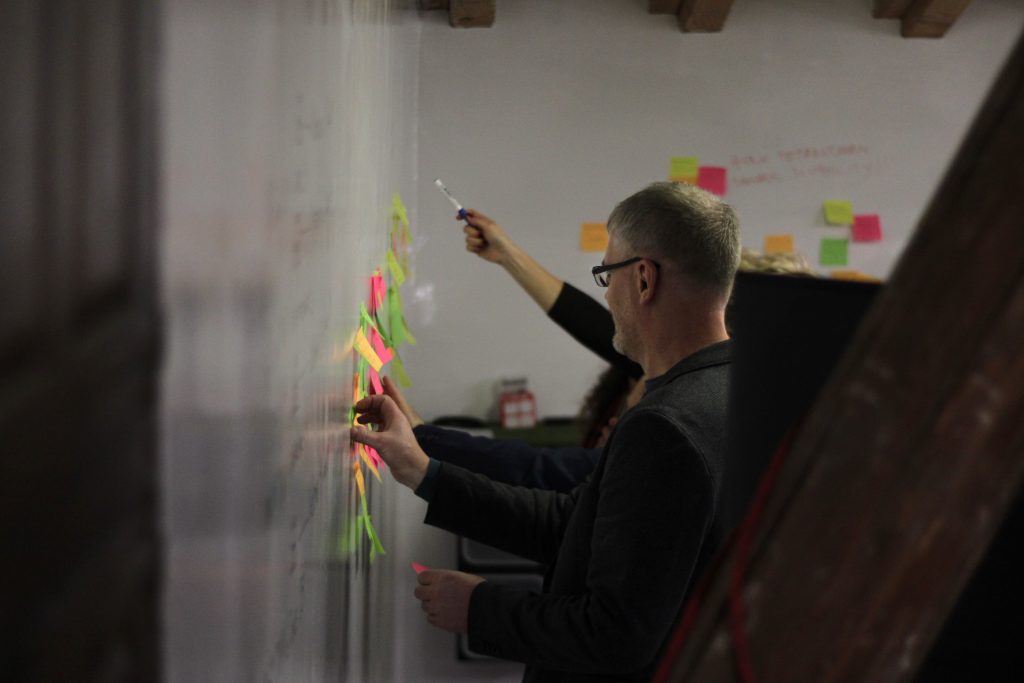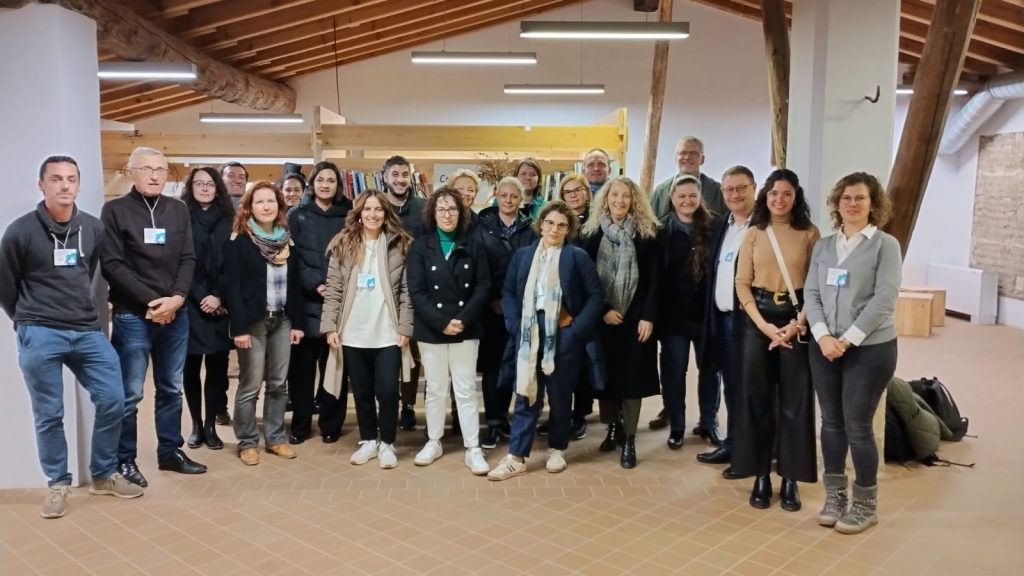Today marks the official launch of URBACT: Beyond the Urban, an ambitious three-year program aimed at fostering a more competitive, sustainable, and inclusive Europe by addressing key challenges in urban-rural connectivity. The initiative is funded by the EU through URBACT, and is led by Creacció Agència d’Emprenedoria, Innovació i Coneixement, headquartered in Vic, bringing together a consortium of ten partners from across Europe, including Bram (France), Bucharest (Romania), Hradec (Czechia), Kocani (North Macedonia), Machico (Madeira), Mátészalka (Hungary), Santa Maria da Feira (Portugal), Tartu (Estonia), and Treviso (Italy).
Transforming Urban-Rural Connectivity for a Smarter, Greener, and Inclusive Europe
Beyond the Urban addresses the critical urban challenge of increasing disconnection between rural and urban areas. This divide has led to social exclusion, economic disparities, and environmental issues, impacting the quality of life for residents in both urban and rural settings.
The program is structured around five key pillars:
- Innovative Economic Transformation and Regional ICT Connectivity: Beyond the Urban will leverage smart mobility and digital tools to enhance competitiveness, promote innovation, and support the transition to a digital, low-carbon, and circular economy in rural regions, connecting them to urban centres.
- Green and Low-Carbon Transition: The initiative promotes clean and fair energy transition, green and blue investment, circular economy practices, and sustainable urban mobility, contributing to the EU’s climate neutrality objective and reducing carbon emissions in both urban and rural areas.
- Enhanced Mobility: Beyond the Urban seeks to stimulate employment, support labour mobility, and reduce transportation barriers between rural and urban areas, fostering economic growth and resilience in communities and regions.
- Social Inclusion: The program aligns with the European Pillar of Social Rights, ensuring that rural and disadvantaged communities, especially women in rural areas, have access to affordable and accessible transportation, reducing social exclusion and promoting a fair transition to a low-carbon economy.
- Integrated Territorial Development: Beyond the Urban aims to integrate local initiatives into regional and national policies through a participatory approach, fostering collaboration among vertical and horizontal multilevel governance.
Addressing Challenges with Sustainable Solutions
Recognising the challenges limiting the effectiveness of urban-rural sustainable mobility, Beyond the Urban will address issues such as inadequate public transport, high operating costs, environmental impact, demographic changes, lack of information, safety concerns, and jurisdictional barriers. The program will explore innovative solutions with a focus on intermodality to create a unique transport system tailored to user needs.
Beyond the Urban aims to play a crucial role in the integral urban planning of Europe, ensuring just and sustainable development in functional areas through a comprehensive approach involving multilevel governance, gender perspective, and expertise in sustainable mobility and digital tools.
Starting point
The project has kicked off with the 1st Transnational Meeting, held in Vic from November 27 to 29, where partners have collaborate to plan actions over the next three years to achieve their common goals.
Around thirty people participated in the three-day meeting, including members of the 10 projects of the network and those responsible for the URBACT program. The attendees have worked together on aspects of the project, such as the baseline study, the roadmap and communication, among others, they have met with some of the local authorities and made a tourist visit to the city. On the last day, they visited the headquarters of the Metropolitan Transport Authority, located in Hospitalet de Llobregat.
Irina Rotaru, project manager of the URBACT Secretariat, highlights the political support and the great involvement of agents that the project has generated in Osona. Everything, in the collaborative line proposed by URBACT: “Participation, comprehensive approach and orientation towards the project”. And he insists: “Spaces for exchange must be found, between partners, agents, which serve to move towards a more sustainable mobility”.

Along the same lines said Dr. Oliver Clyde Hutchinson, European mobility expert from URBACT who advises the Beyond the Urban network: “Each of the agents and regions can teach us, each region has something to share”. Also Gerard Sancho, president of the Osona Council: “Participating in URBACT is an opportunity to learn from each other”.
Hutchinson gives some examples of mobility problems shared by the 10 project partners: “There are too many cars. There is no culture of carpooling or of not taking children to school by car.” And he adds: “Transport in rural areas, which is often done by bus, is complicated”.
Mobility in Osona and the project
The mobility of the future is one of the strategic projects of the region, framed in the manifest “Osona, future challenges”, signed in March 2022. Mobility is a determining factor in the day-to-day life of people in Osona and conditions training, employment opportunities, access to services, quality of life…
This is why the public administration and civil society have made a joint commitment to mobility and some actions have been prioritized. This is what Gerard Sancho revealed at the Beyond the Urban presentation press conference: “We face the challenge with determination.”
An example of this is the creation of the regional council of mobility, led by Arnau Basco, as he himself explains: “We have integrated the Osona mobility challenge, and that is why we want to engage the entities of the region”. And he concludes: “We have three main lines of work: the Beyond the Urban project, with the aim of having, in 2025, an intermobility study done; the R3 Technical Office and the redefinition of Osona’s mobility table, which we must face together”.
Regarding specific aspects of Vic related to mobility, the mayor of the city, Albert Castells, highlighted: “We are working to convert mobility towards sustainability and we are proud to carry out projects such as the expansion of the network cycleable But we have a pending subject with our industrial zone and that is why it is very important to continue the URBACT project, to find the effective and efficient way to continue transforming the cities and the region to be able to retain talent”.
Finally, the mayor of Manlleu, Arnau Rovira, has pointed out that the improvement of intermobility can be “an opportunity to enter the labor market for a population profile that does not currently have access to it”. Rovira also detailed some of the other challenges the town has: “We need to remove the heavy traffic in the middle of the town; we want to become a smart city, and in this framework sustainable mobility is key; and more bike lanes must be developed”.
More information on the Beyond the Urban website (in process)
More information on the Creacció website
Social media:
https://twitter.com/beyondurban2023
https://www.linkedin.com/company/urbact-beyondtheurban/



